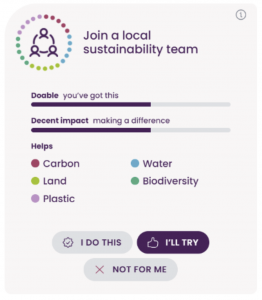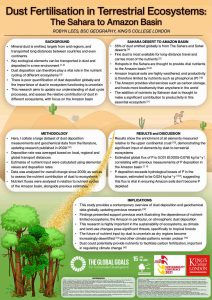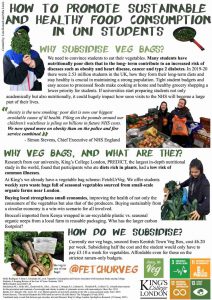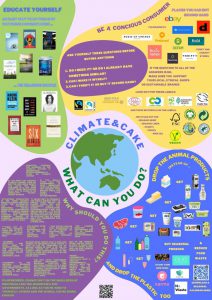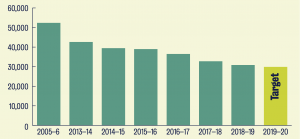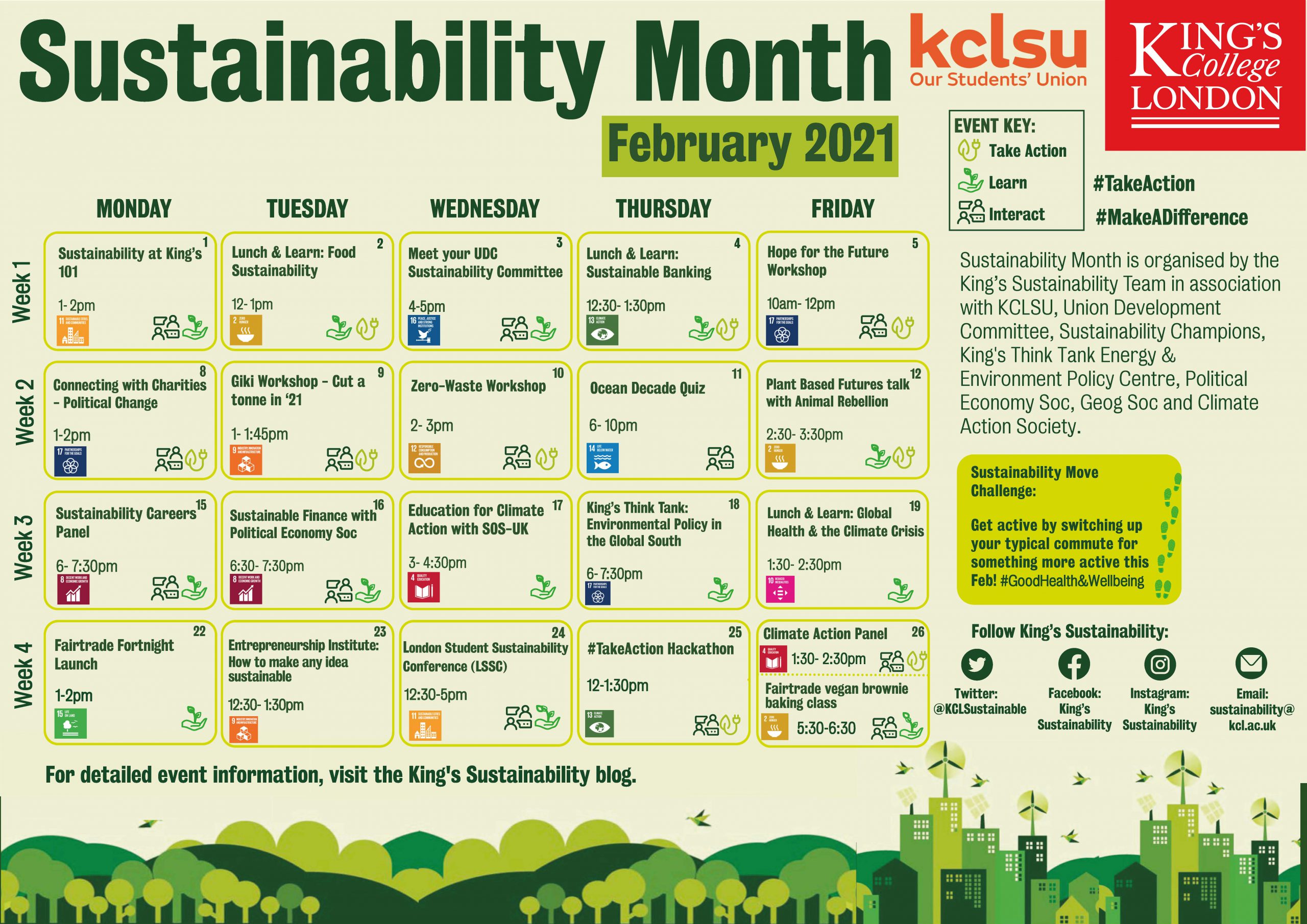This guest blog comes from Rebecca Lindsay, BA Philosophy and Spanish student and Sustainability Champion Assistant (SCA), supporting the King’s Energy Team.
Carbon offsetting is the source of much debate in the energy world, being that it’s extremely difficult to ensure you’re offsetting correctly. This week we’ve teamed up with Dr Joachim Aufderheide from the Philosophy department to discuss all things ethics-related when it comes to offsetting our carbon emissions!
First, some background – what is carbon offsetting?
Joachim Aufderheide (JA): Through our carbon emissions, we contribute to global warming, which in turn causes much harm, especially in developing countries. It is morally wrong to harm others and/or destroy their resources. We cannot, however, simply stop emitting greenhouse gases (to which CO2 counts). So, in order to cancel out the harm we do, we can offset our emissions. I cause a certain amount of CO2 to be emitted during a certain period of time. This CO2 will stay in the atmosphere for a very long time. Now, if I cause the same amount of CO2 to be reduced in that timeframe, I have offset my CO2, and thereby have mitigated the harm I do.
How do we do ‘offsetting’ in a meaningful way, with the most impact, while not undermining the emphasis on carbon reduction?
JA: First off, we need to be clear about what ‘reducing’ means. By, for example, planting trees, we create carbon sinks that bind the CO2 we emit. However, this is not a good strategy because when the trees die, the carbon will re-enter the atmosphere. It takes millions of years to move carbon from the atmosphere back into the so-called passive carbon pool, below ground as oil. So, when we offset, we need to support measures to prevent carbon from being taken from the passive carbon pool and transferred into the active one, i.e., the atmosphere. In plain language, we need to support reducing emissions on the one hand and improving renewable energy on the other.
Second, it must be clear that offsetting is a temporary measure: even if we offset our CO2 emissions, emitting at the same rates is not sustainable. The carbon market will become more and more saturated: the easy and cost-effective projects to reduce carbon emissions will have been completed at some point. Then the spotlight shines back on us who have not changed our emissions but chose instead to pay other people to reduce their emissions. So, to avoid the worst harm that we cause through global warming, we should not only offset our emissions but also reduce our emissions.
Third, I think that many of us are committed to reducing our carbon footprint. But many of us don’t know what our footprint is, and what we should do. I wonder whether making the carbon cost clear, for example, by labelling our purchases, would be helpful.
How can we most powerfully make the case for offsetting when it will involve increased spend at a financially difficult time?
JA: It might help to put things into perspective. Compared to previous generations, we are not in financial difficulties. We have become more and more wealthy so that many are sufficiently wealthy now to make ends meet and live reasonably well. While economic development is important, we must not forget the goal: to enable people to live and to live well. If we exploit our planet too much, these goals will become increasingly more difficult to attain.
What kind of monitoring is (or should be) in place to ensure that there are actual carbon reductions in the offsets that we may purchase, and are some areas of offsetting ‘better’ or ‘worse’ for this?
JA: Offsetting presents some problems. First, it is unclear whether we buy genuine offsets. For instance, if a project is funded through offset funds, it would genuinely offset emissions only if it would not have happened otherwise. But this is not always clear. If a country is sufficiently interested in, let’s say, a wind farm to have it built as an offsetting project, then it seems likely that there would have been other ways to realise this project.
Second, and relatedly, some projects are double-counted, both as offsetting emissions and as part of a country’s effort to reduce emissions.
Third, it is not always easy to measure the impact of the project. Buying cleaner and more efficient stoves for communities in the developing world only offset our emissions if they are actually used. But this is not always the case. So, it would be good if projects were not one-off and, at the very least, we should collect data to determine the efficiency of projects. This would allow us to get a more accurate account of how much different projects tend to offset.
Finally, projects that do not require people to change the way they cook or do other daily things might not only be more effective but also less ‘invasive’: if we don’t change our ways, why should they?
What are the risks for developing nations when agreeing to offset UK carbon emissions?
JA: Some offsetting projects mean well, but don’t do good. For instance (monoculture) tree plantations can have bad effects on wildlife, soil and water. Building a dam often comes with complex political questions about access to water further down the river and this can lead to conflicts. Another host of problems surrounds the rights of indigenous people who might live where the projects are to be located.
Where in the world are offsets most valuable and what kinds of activities are most effective?
JA: The utilitarian argument that we can do better for the world by focusing on developing countries is rather strong. It is expensive for us to cut down our carbon emissions. So, instead of that, we should use the money we save to fund projects in developing countries, thereby offsetting more CO2 than if we had merely focused on reducing our emissions. If indeed we invest the money so saved in addressing climate matters, we are not self-indulgent.
How truly ethical are the offsetting schemes with a UN Gold standard?
JA: I am no expert in this, but the Gold Standard takes many factors into consideration that were ignored in the past, and to some extent still are by other offsetting standards. For example, child labour, the indigenous peoples affected, labour rights, the impacts on water. It seeks to benefit the local population as well as cutting down on carbon emissions. However, like all the other standards, the Gold Standard allows the people running the projects to collect their own data. It would be an improvement if there would be independent monitoring.
What valuation should we be using when choosing between offsetting schemes?
JA: As far as I can see, most projects certified by the Gold Standard seem genuinely beneficial.
What pitfalls should we be looking for?
JA: Perhaps the biggest pitfall is complacency. Even if we’re offsetting our emissions, this does not mean we’re home and dry. We must be aware that it is a temporary measure that bridges the way towards a more environmentally conscious use of our resources. We must commit to reducing our carbon emissions, not only the emissions elsewhere in the world.
Should we (King’s) set up our own scheme?
JA: I’m not sure. I’d think we should offset and reduce our emissions. But we as an educational institution should seek to do more about the education that’s necessary to change the behaviour of emitters: individual people, groups, and organisations. It would be amazing if we could set up a scheme with schools on environmental education.
Thanks to Dr Aufderheide for answering our questions!
If you would like more information on how we use energy at King’s, or want to get involved, head over to the King’s Sustainability Instagram page or email the energy team at energy@kcl.ac.uk. We’d love to hear from you.


